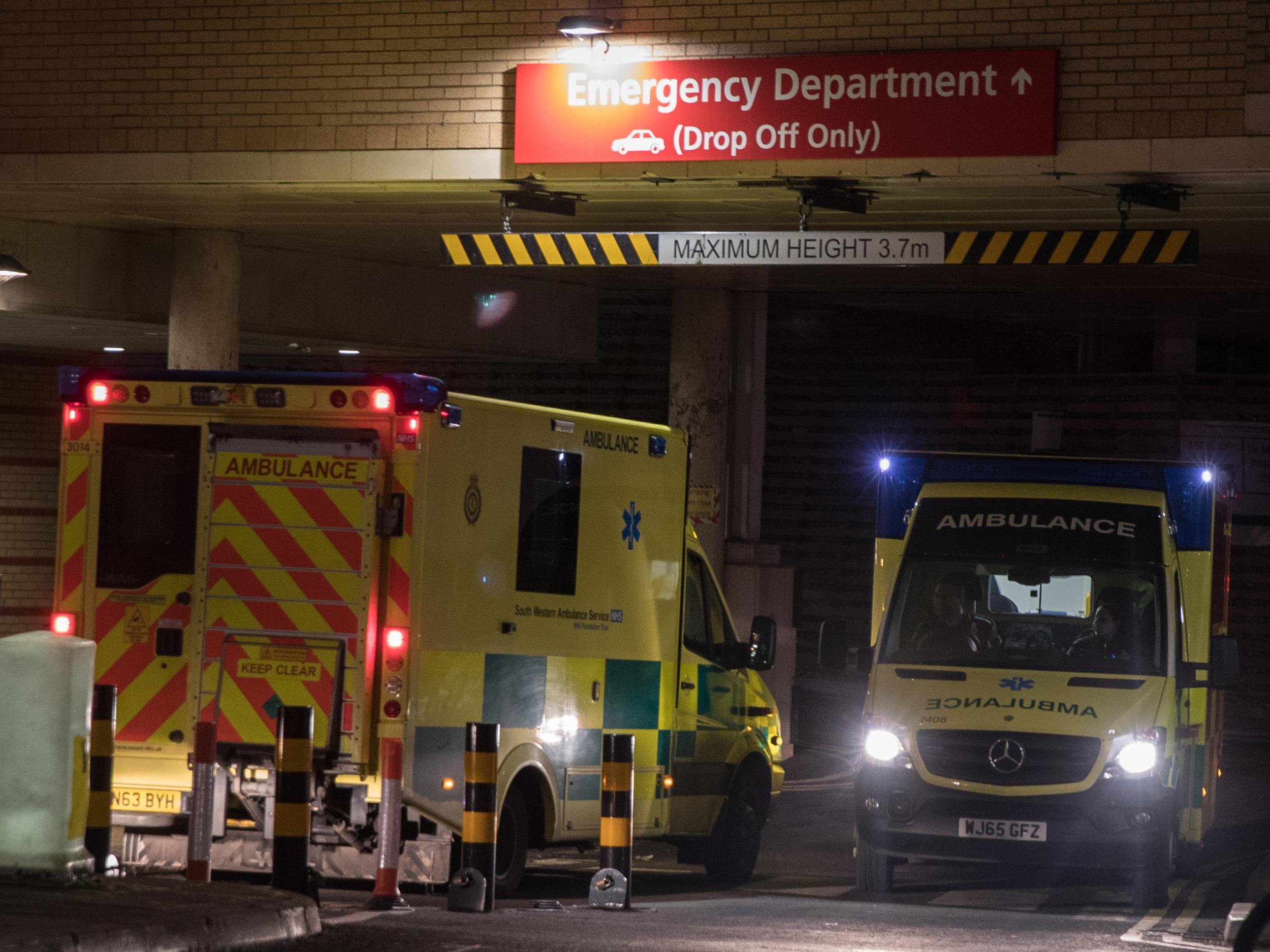Government cash meant to transform NHS barely 'keeping show on the road', report finds
Government criticised for reliance on short-term funding injections which fail to match current NHS demand and are immediately swallowed by existing deficits

Funding to “transform” the NHS has only succeeded in propping up struggling services, and may have worsened health service finances in the long run, a report by the National Audit Office (NAO) has found.
The public spending watchdog has criticised the Government for relying on short-term cash injections, which have been immediately swallowed up by soaring demand and pre-existing deficits.
An extra £1.8bn in sustainability and transformation funding in 2016-17 was intended to give “breathing space” to implement reforms across the whole health system, including GP and mental health services.
But NHS bosses warned it had merely “kept the show on the road” for another year, with the bulk of the money being used to prop up struggling hospital trusts and emergency services.
Commenting on the NAO’s findings Meg Hillier, chair of the Commons Public Accounts Committee, said the current winter pressures “hammer home” why the NHS needs a longer-term funding plan.
“The Department of Health’s recent cash injections have been spent on patching up the problems, not preparing it for the future.
“This will come as no surprise to everyone affected by overcrowded hospitals and cancelled operations this winter,” she added.
The exceptional pressures being experienced across the NHS in recent weeks highlight the disparity between the funding committed by the Government and the resources needed to meet current demand.
Prime Minister Theresa May has repeatedly said the NHS is better prepared for this winter than ever before, and was given extra funding in the budget to cope.
But these plans and an extra £335m allocated for winter, announced in the last week of November, still resulted in the worst ever A&E performance figures and the cancellation of tens of thousands of operations.
While the NAO report found the headline NHS funding position improved “markedly” in 2016-17, going from a deficit of £1,848m in 2015-16 to a £111m surplus, this masks growing financial instability.
“National bodies directed most funding towards acute trusts to relieve pressures in providing emergency care services, although the largest deficits remain in this sector,” the report warns.
Meanwhile the number of NHS clinical commissioning groups reporting deficits nearly doubled in a year, from 32 to 62 in 2016-17, and surpluses across all NHS organisations are increasingly one-offs.
Trusts are being left with spiralling maintenance bills because the Department of Health plundered £1.2bn earmarked for buildings and repairs to fund care delivery.
“In 2017-18, the Department plans a further substantial transfer” from capital reserves, the report said.
“While this revenue support is needed to fund healthcare services, there is a risk that property and equipment will not be maintained effectively,” it warns.
Trusts are also increasingly reliant on mid-year, cash injections – mostly interest bearing loans from the Department of Health – to meet targets and the NAO warns these “have worsened rather than improved their financial performance”.
Chris Hopson, the chief executive of NHS Providers which represents health service trusts, said that report echoed its own concerns.
“Extra funding to facilitate better, more convenient and sustainable ways of providing care for patients was used up just keeping the show on the road.
“And some of the short-term measures to raise revenue, such as the raids on capital budgets, meant planning for the future was further compromised.”
Julie Wood of NHS Clinical Commissioners, which represents CCGs, said: “It is vital that the sustainability and transformation funding is used as it was intended and supports the whole system – including primary care, mental health and community services which along with the acute sector are also under huge pressure – to make the long-term changes that are needed.”
Jonathan Ashworth, the Shadow Health Secretary, said this was the culmination of “years of underinvestment”.
“The NAO’s report confirms the Government’s flawed and wholly inadequate approach to the sustainable, long-term funding of the NHS,” he added.
An NHS England spokesperson said: “The NAO rightly report that the NHS has improved its overall financial position over the past year.
“They are also right to support the NHS’s move to more care integration.”
The Independent has approached The Department of Health and Social Care for comment but none had arrived at the time of publication.
Subscribe to Independent Premium to bookmark this article
Want to bookmark your favourite articles and stories to read or reference later? Start your Independent Premium subscription today.

Join our commenting forum
Join thought-provoking conversations, follow other Independent readers and see their replies